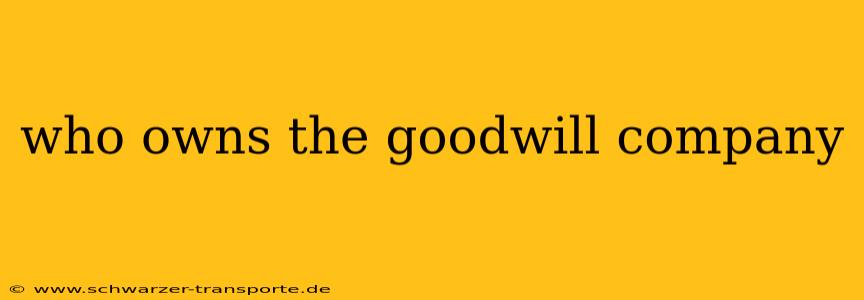Goodwill Industries International is a unique organization. Many people wonder, "Who owns Goodwill?" The answer isn't as straightforward as it might seem for a typical for-profit company. Goodwill isn't owned in the traditional sense. Instead, it operates as a network of autonomous, locally-owned and operated nonprofits.
The Decentralized Structure of Goodwill
This is a key point to grasp. There's no single entity or individual who "owns" Goodwill. Instead, there are over 160 independent Goodwill organizations across the United States and Canada alone. Each operates under its own local board of directors and is responsible for its own finances and operations. This explains why you might see slight variations in services and pricing between different Goodwill locations.
Goodwill Industries International: The Umbrella Organization
While each Goodwill is independent, Goodwill Industries International (GII) acts as a coordinating body. GII provides support and resources to the individual Goodwill organizations. This includes things like:
- Branding and marketing guidelines: Ensuring consistent brand recognition across the network.
- Training and development programs: Helping local Goodwill organizations improve their operations and services.
- Advocacy and public relations: Representing the interests of the entire Goodwill network.
However, GII doesn't own or control the individual Goodwills. It's more accurate to see it as a collaborative network rather than a hierarchical structure.
The Non-Profit Mission: More Than Just Thrift Stores
It's important to understand that Goodwill's core mission transcends its retail operations. While the thrift stores are a significant source of revenue, the profits generated are primarily used to fund the organization's social mission: providing job training and employment services to individuals facing barriers to employment. These services can include:
- Job placement assistance: Helping individuals find and secure employment.
- Vocational training: Equipping individuals with the skills they need to succeed in the workforce.
- Resume and interview preparation: Providing individuals with the tools they need to present themselves effectively to potential employers.
- Life skills training: Addressing broader challenges that might hinder employment, such as financial literacy or transportation.
This mission-driven approach is what distinguishes Goodwill from a typical for-profit retailer. The profits aren't distributed to shareholders; they are reinvested back into the community to support its social mission.
Local Governance and Accountability
Each individual Goodwill organization is governed by a local board of directors. These boards are typically comprised of community leaders, business professionals, and other stakeholders committed to Goodwill's mission. They oversee the local organization's finances, operations, and adherence to Goodwill's overall mission. This local governance structure ensures accountability and responsiveness to the specific needs of the community it serves.
In Conclusion: A Network, Not a Single Owner
To reiterate, Goodwill isn't owned by a single person or corporation. It's a vast network of independent, non-profit organizations, each with its own local board and operational structure. Goodwill Industries International provides support and coordination, but the individual Goodwills retain their autonomy. The real owners, in a sense, are the communities they serve, benefiting from the organization’s job training and social impact programs.
